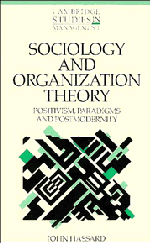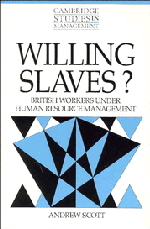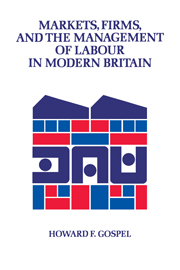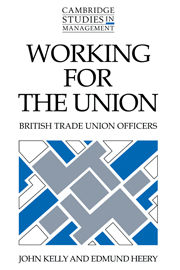5 results in Cambridge Studies in Management

Sociology and Organization Theory
- Positivism, Paradigms and Postmodernity
-
- Published online:
- 03 May 2011
- Print publication:
- 15 April 1993

Willing Slaves?
- British Workers under Human Resource Management
-
- Published online:
- 04 April 2011
- Print publication:
- 19 May 1994

Markets, Firms and the Management of Labour in Modern Britain
-
- Published online:
- 23 November 2009
- Print publication:
- 14 May 1992

Price, Quality and Trust
- Inter-firm Relations in Britain and Japan
-
- Published online:
- 30 October 2009
- Print publication:
- 08 October 1992

Working for the Union
- British Trade Union Officers
-
- Published online:
- 22 October 2009
- Print publication:
- 09 June 1994

